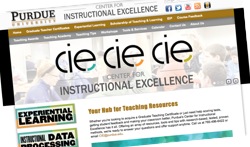The Polytechnic Incubator's vision is to create a gravity-free space to question all assumptions, scrutinize all practices, and create the best possible learning environment for the students of today and the future. The potential disruptive nature of the endeavor called for an entrepreneurial approach. In her paper titled “What Makes Entrepreneurs Entrepreneurial,” Saras D. Sarasvathy, associate professor at the University of Virginia’s Darden Graduate School of Business Administration, contrasts the typically taught causal planning and reasoning with entrepreneurial (effectual) thinking. She sums it up in three key points:
- “Whereas causal reasoning focuses on expected return, effectual reasoning emphasizes affordable loss.
- Whereas causal reasoning depends upon competitive analyses, effectual reasoning is built upon strategic partnerships.
- Whereas causal reasoning urges the exploitation of pre-existing knowledge and prediction, effectual reasoning stresses the levering of contingencies.”
If anything, the work we have been doing in the Polytechnic Incubator has been a case study in effectual reasoning in the three dimensions identified. In particular, we have been blessed in the scope, strength, and quality of our partnerships within Purdue and beyond. We highlight here the privileged relationship we have with the Center for Instructional Excellence (CIE). In particular, we are collaborating on growing the reach of and exposure to the work done within the Polytechnic Incubator to the participating units, in particular the College of Technology.

In Fall 2014, our team of pioneering faculty fellows will be implementing, assessing, and refining the educational experience they have designed for the 35 first-year students. In addition to the fine-tuning of the offered curriculum as part of the transdisciplinary degree, we are interested in its diffusion to traditional degree programs. A diffusion team is being identified. This team will be composed by one or two faculty members from each department who will observe Incubator’s implementation and then work together to adapt it and design new first-year programs. Faculty from CIE will help facilitate the process. In the fall, they will work with the diffusion team to help them form a coherent group with a common vision consistent with the Incubator. They will also observe the work done by the pioneering faculty fellows and reflect on it. In the spring semester, the diffusion team, with support from the CIE faculty, will be adapting what they would have observed to redesign a CoT first year curriculum. This curriculum might be common for the whole college or it may consist of a common core with different variations or any other format that would make sense.
Having strategic partners around campus such as CIE who share a common vision and are committed to the success of our students is one of the most rewarding aspects of what we are doing.
